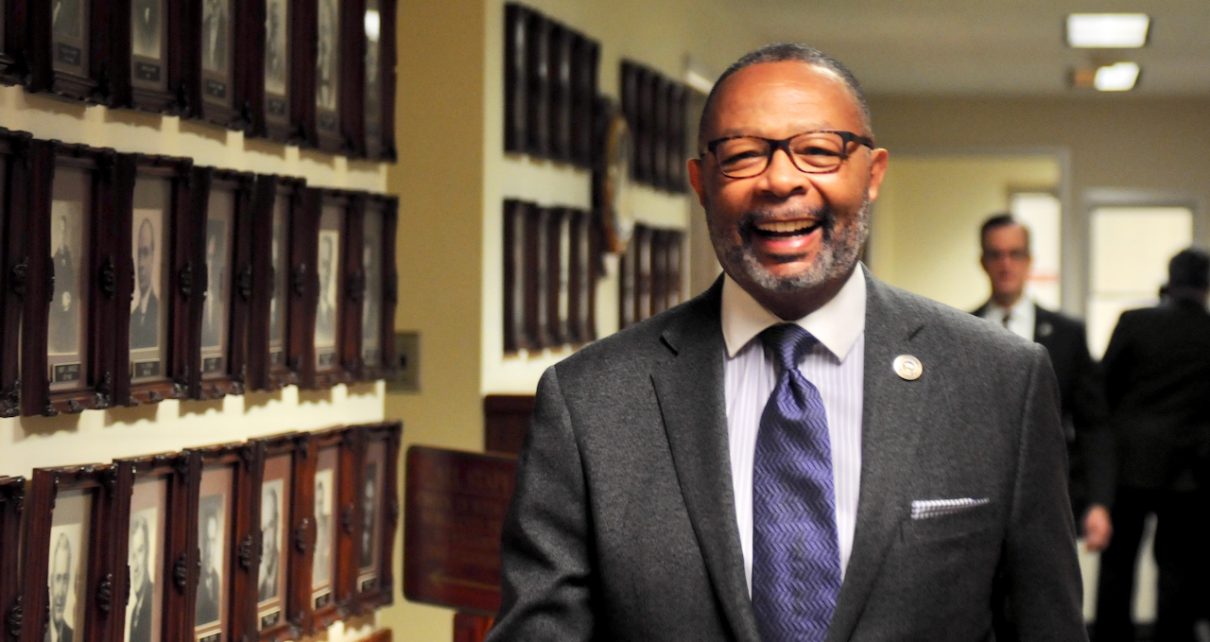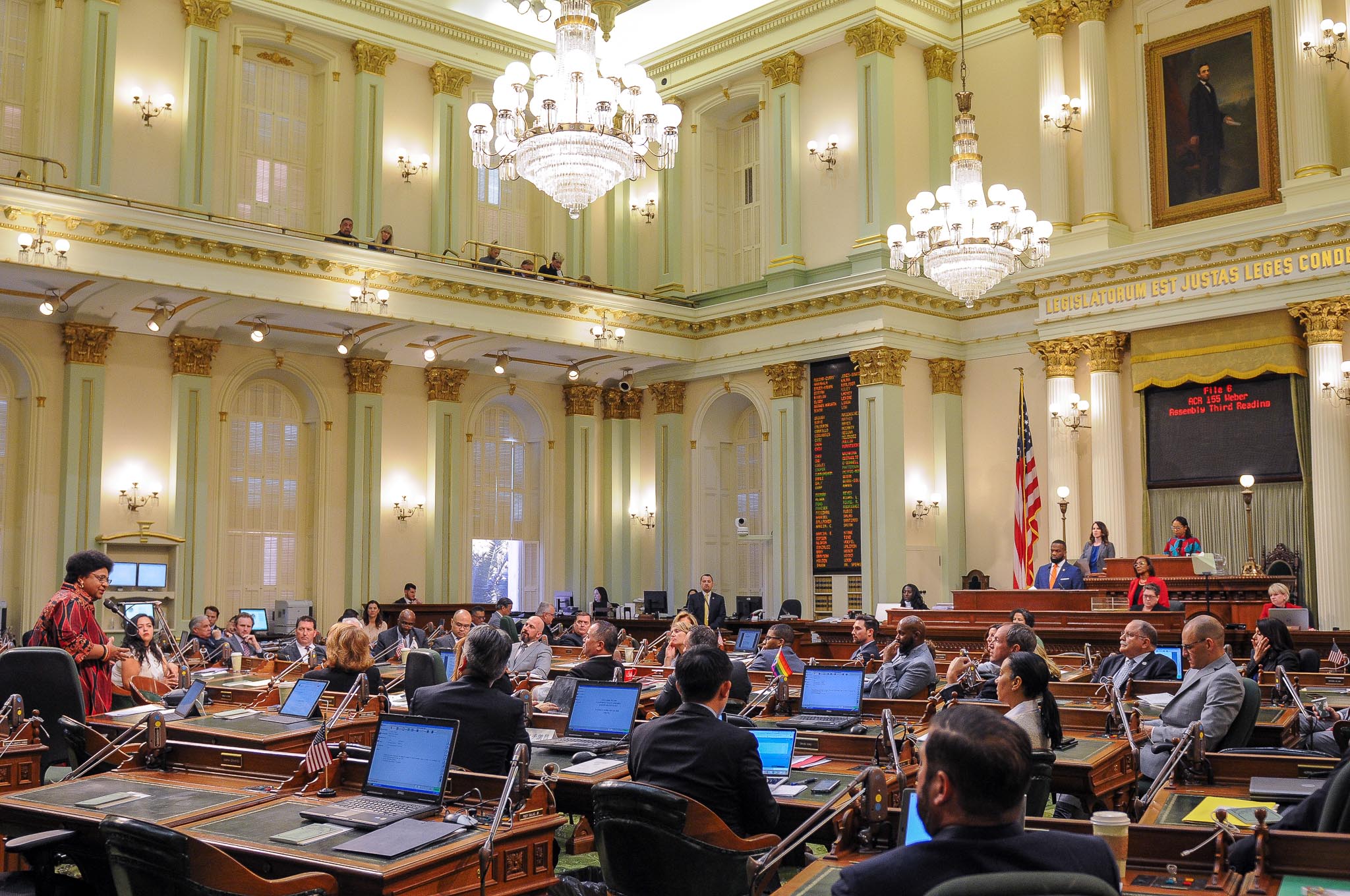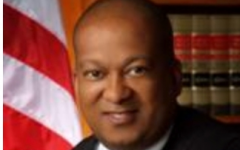
Assemblyman Reggie Jones-Sawyer. (Kevin Sanders for California Globe)
Bill To Restrict Music Lyrics Used As Evidence in Court Passes Assembly
AB 2799 headed to Gov. Newsom to either sign or veto
By Evan Symon, August 23, 2022 4:18 pm
A bill to restrict using music lyrics as evidence in court cases was passed by the Assembly for the second time with Amendments on Monday, sending the bill to Governor Gavin Newsom for his signature or veto.
Assembly Bill 2799, authored by Assemblyman Reggie Jones-Sawyer (D-Los Angeles), would require courts in a criminal proceeding where a party seeks to admit as evidence a form of “creative expression,” to consider factors in weighing the value of the evidence against potential danger of prejudice. Courts would also be required to balance the the probative value of a creative expression against the substantial danger of undue prejudice by first considering that the probative value of the creative expression for its literal truth is minimal unless that expression meets specified conditions.
AB 2799 would then have courts consider if prejudice will be given based on whether the creative expression could be used as evidence to show a defendant’s propensity for violence or criminal disposition, or if racial bias would become part of the proceedings.
Essentially, bills would be asking courts how forms of art, such as rap music, should and could be used as evidence, with specific parts of the expression, such as musical lyrics, being questioned if they show that a defendant is violent or if the evidence is more racially motivated.
Assemblyman Jones-Sawyer wrote AB 2799 because rap music and the lyrics have been employed in courts to use against suspects, with the evidence supposedly triggering racial bias on juries. He also noted that without the bill, musical expression would be limited as many music writers could by concerned enough to “stymie” creative expression.
“Under current law rap artists can feel as though they are being read their Miranda Rights before they even begin to write music: ‘You have the right to remain silent. Anything you say can and will be used against you in a court of law,'” said Assemblyman Jones-Sawyer on Monday. “We should not stymie the creative expression of artists. Unfortunately, racial biases play a role when talking about musical genres. Rap music lyrics share many similarities to that of other musical categories yet are singled out by the judicial system to characterize an artist. AB 2799 would disallow prosecutors from triggering racial biases or reinforcing racial stereotypes and it gives judges guidance on the use of creative expression in court.”
AB 2799 to go to Gov. Newsom for veto, approval
AB 2799 was completely gutted and replaced in June, going from a jury instructions bill to a bill concerning using musical lyrics as evidence in court cases. Despite the radical change, both Republicans and Democrats supported the bill, with the Senate passing it 38-0 earlier this month and then 76-0 in the Assembly on Monday.
“The bill is popular because it shows a major problem and because it affects creative expression across the board,” explained Ted Cooper, a lawyer who has been a part of cases in 4 states where musical lyrics played a part in legal cases. “Rap music is the major thing here, as lyrics are often suggestive or violent with the vast majority of artists being black. But there have been cases with other genres, especially country, that affect everyone else too.”
“To many people, having music lyrics you wrote or sang show up in court really does affect how juries see the person. If they are singing about violence or something, like in, say, a shooting case or domestic abuse case, juries can zero in on that. Plus juries usually pay more attention to media when it is played, as it is such a different thing being presented. Five hours of people talking can be monotonous. But music or a video being played or at least quoted is such a change of gear. And the genre can really influence juries.”
“That’s why members of both parties are for the bill in California. It’s that much of a problem in courts.”
AB 2799 will next go to Governor Newsom, which he is expected to sign into law by next week.
If signed into law, California will be the first state in the country with such a legal policy. It was likely going to be second earlier this year, but due to a delay with a similar bill in New York, California’s could become law first.
- Bill to Require Law Enforcement Disclosure if AI Was Used To Help Write Reports - August 7, 2025
- Gov. Newsom Files FOIA Request To ‘Expose True Cost’ Of L.A. Federal Troop Deployment for Anti-ICE Riots - August 6, 2025
- California Redistricting: How Newsom’s Plan Will Demolish Hard Fought GOP Gains - August 6, 2025





California is going to Hell in a hand basket and this is what the legislators consider a good use of their time?